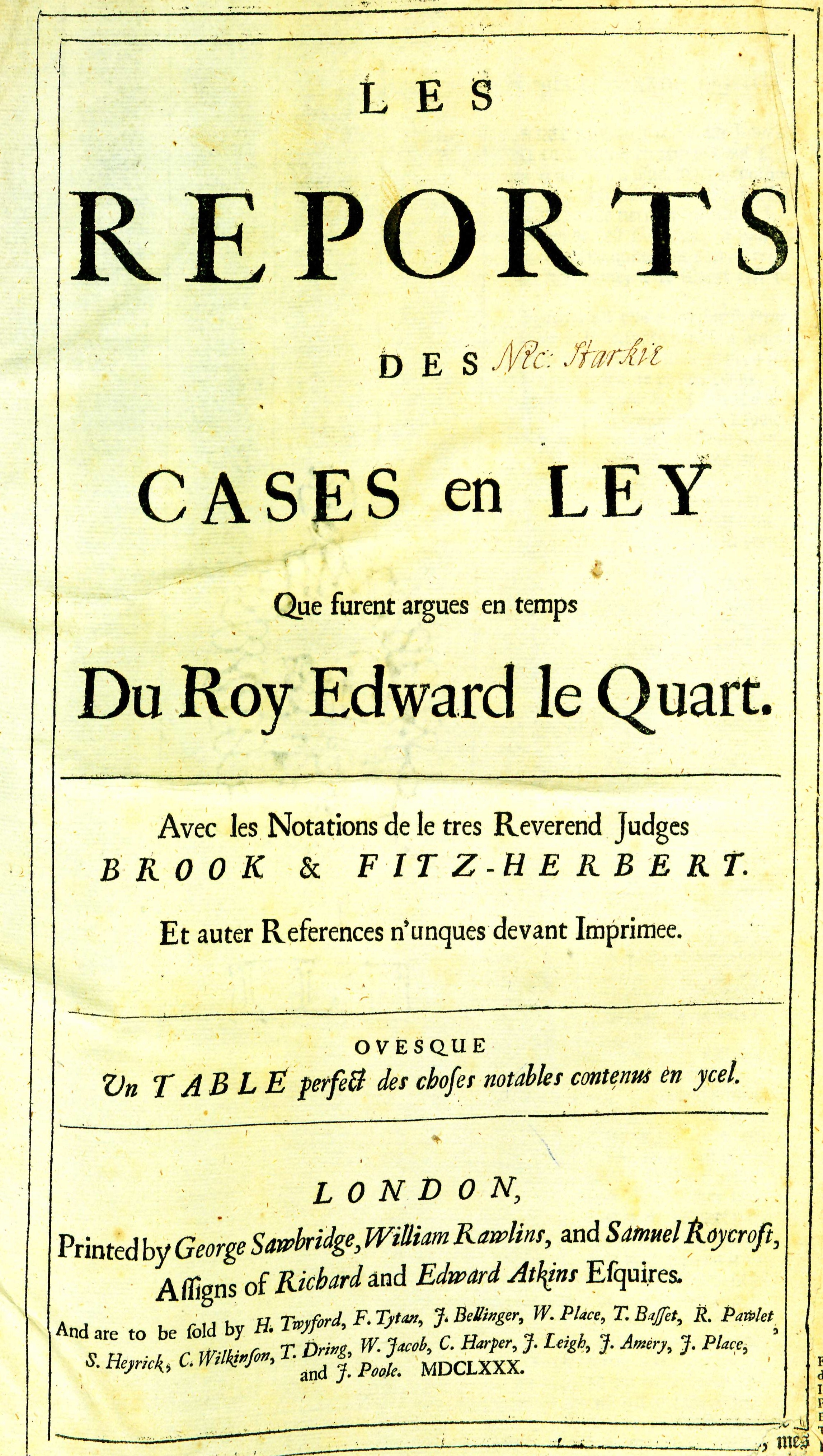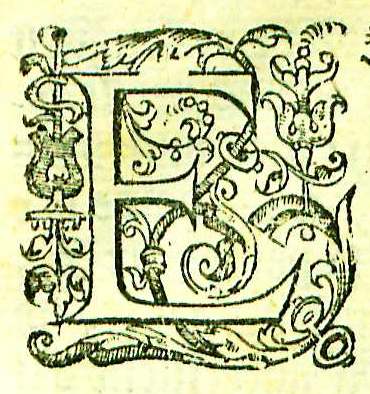Difference between revisions of "Year Books"
(fn edits) |
m (Lktesar moved page Reports des Cases Argue and Adjudge in le Temps del'Roy to Year Books) |
(No difference)
| |
Revision as of 10:36, 17 April 2014
by
| Yearbooks | |
|
Title page from Les Reports des Cases Argue and Adjudge in le Temps del'Roy: Edward I - Henrie VIII, volume nine, George Wythe Collection, Wolf Law Library, College of William & Mary. | |
| Editor | John Maynard and Richard de Winchedon |
| Published | London: s.n. |
| Date | 1678-1680 |
| Edition | Serjeant Maynard's edition |
| Language | Law French |
| Volumes | 11 volume set |
| Desc. | Folio (39 cm.) |
Instead of being produced by an official authority, it is likely that the Year Books were the work of numerous entrepreneurs, as they vary greatly in style and content.[8] Scholar William Holdsworth contends that the Year Books evolved from the work of students.[9] As the years progressed, reporting became more standardized. Extraneous details that characterized the early reports gradually faded, and the cases became the main concern.[10]
The form began to fall out of use, and in 1535 the last Year Book was published.[11] By 1678, the books were so scarce that a full set sold for £40.[12] Bemoaning this scarcity as a "detriment to the study of law," judges demanded that the Year Books be republished, and they experienced a brief revival when they were reissued in 1679.[13] But this was short-lived, as they had ceased to be of any use to practicing lawyers.[14] Few lawyers could read the archaic language, and newer books served their needs more thoroughly.[15] In addition, most of the useful information from the Year Books could be found in the Abridgements.[16] In the twentieth century, the Year Books experienced another revival for scholars interested in historical research, and they remain a useful tool for understanding the features of life in medieval England and the evolution of legal thought.[17]
Evidence for Inclusion in Wythe's Library
Wythe cited volume nine of the Year Books, Les Reports des Cases en Ley que Furent Argues en Temps du Roy Edward le Quart, in his arguments in Bolling v. Bolling: "yet his action is gone for ever, which is agreed to by all the justices according to the report 21 E.4...."[18] Brown's Bibliography[19] includes the entire set of Yearbooks compiled by John Maynard and Richard de Winchedon (1678-1680). Brown does acknowledge the possibility that Wythe used a copy owned by the Council Library or someone else. The Wolf Law Library agreed with Brown that Wythe likely owned his own copy, and purchased the 1678-1680 set.
Description of the Wolf Law Library's copy
Bound in modern quarter calf over marbled boards. Each volume includes the signature "Nic. Starkie" on the title page.
View this book in William & Mary's online catalog.
References
- ↑ Percy H. Winfield, The Chief Sources of English Legal History (Cambridge: Harvard University Press, 1925), 158-159.
- ↑ Ibid., 159.
- ↑ Ibid.
- ↑ Ibid.
- ↑ Ibid.
- ↑ Ibid., 161.
- ↑ Ibid., 161-62.
- ↑ W. S. Holdsworth, A History of English Law (Boston: Little, Brown, and Company, 1924), 2:535.
- ↑ Ibid., 536-37.
- ↑ Ibid., 541.
- ↑ Winfield, The Chief Sources of English Legal History, 171.
- ↑ Holdsworth, A History of English Law 529.
- ↑ Winfield, The Chief Sources of English Legal History 171.
- ↑ Ibid., 171-72.
- ↑ Ibid.
- ↑ Ibid., 171.
- ↑ Ibid.
- ↑ Bernard Schwartz, Barbara Wilcie Kern, R. B. Bernstein, eds., Thomas Jefferson and Bolling v. Bolling: Law and the Legal Profession in Pres-Revolutionary America (San Marino, CA: The Huntington Library; New York: New York University School of Law, 1997), 266.
- ↑ Bennie Brown, "The Library of George Wythe of Williamsburg and Richmond," (unpublished manuscript, May, 2012) Microsoft Word file. Earlier edition available at: https://digitalarchive.wm.edu/handle/10288/13433.


